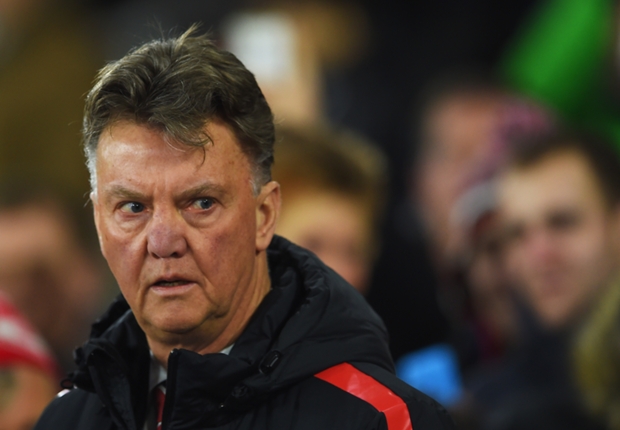The Manchester United coach believes he has a philosophy. He doesn't like to mention it more than once a sentence, but he will make exceptions. "The most important thing is my philosophy and when you stick by your philosophy you can do that because every player has played in that philosophy," he said after December's win over Liverpool. It was a typical Van Gaal statement. Improve and the Dutchman says it is because of the philosophy. Fail to impress and he will say they are not implementing the philosophy well enough.
But six months after his arrival at Old Trafford, some aren't entirely sure what his philosophy is. Others simply don't have a clue.
Because at times it seems a meaningless, catch-all word Van Gaal uses to excuse, explain or justify. It is little wonder many are confused.
As recently as last April, the suggestions were that Van Gaal was wedded to the Dutch system of 4-3-3. Yet he has used six shapes at United, but never 4-3-3. Or, for that matter, the regulation 4-4-2 he deployed in 23 successive games when Bayern Munich won the Bundesliga on his watch.
He came as the man who won the Champions League with a largely homegrown team at Ajax. He has overseen the biggest summer spending spree in the history of English football at Old Trafford, paying £152 million for six players, and smashing the British record to fork out £59.7 million for Angel Di Maria.
He has a reputation as a serial winner but so far he has been out-performed, and on Sunday he was outwitted by Ronald Koeman, his protégé turned enemy. He appears to like quick players but has selected some slow sides.
He came as the man with an evangelical faith in youth but, while Tyler Blackett and Paddy McNair have been given surprise chances, James Wilson produced more in Ryan Giggs' brief spell in charge, while Adnan Januzaj, United's brightest young prospect in years, seems to have disappeared from contention, and Danny Welbeck was sold to make way for Radamel Falcao. It is a decision United could come to regret.
He is a supposed apostle of passing football, but United's default Plan B is to lump long balls at Marouane Fellaini. Imagine the criticism David Moyes would have received if he had adopted the same approach. Van Gaal, a manager who touts purist principles, was decidedly pragmatic in the World Cup when the Netherlands often played without the ball.
The 63-year-old was supposed to be a high priest of attacking football, yet his United have only scored two more goals than West Ham. Their £270 million team did not record a single shot on target against Southampton on Sunday. They are not the great entertainers many imagined when the five 'Gaalacticos' – Di Maria, Falcao, Robin van Persie, Wayne Rooney and Juan Mata – were united.
Nor are they parsimonious at the back. Opponents have mustered 83 shots on target against United – more than against Everton, who have the second worst defensive record in the division – but, because of the superb form of David de Gea, they have only scored 21. With an inferior goalkeeper – and that doesn't necessarily mean a poor one – United would be at least six points worse off. Possibly 10. Imagine the league table then. As it is, they have 37 points from 21 games, the same return the much-maligned Moyes managed at the start of his reign.


No comments:
Post a Comment